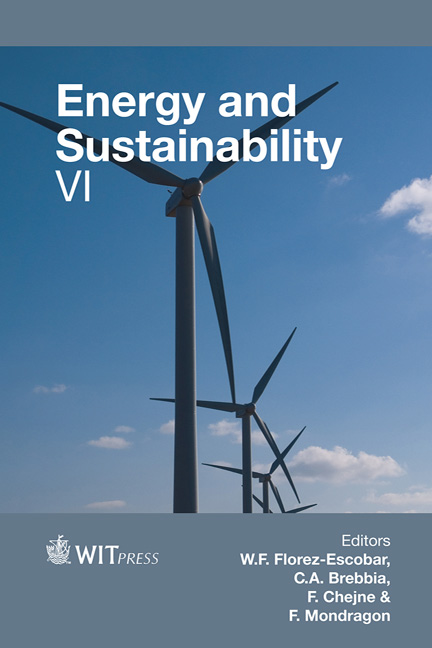Adaptability To Energy, Production Efficiency And The Crude Oil Price: Evidence From A Small Open Economy
Price
Free (open access)
Transaction
Volume
195
Pages
12
Page Range
173 - 184
Published
2015
Size
313 kb
Paper DOI
10.2495/ESUS150151
Copyright
WIT Press
Author(s)
C.-H. Huang, H.-P. Su, C.-W. Yang, C.-Y. Hong, J.-F. Li
Abstract
Taiwan is an economy which is highly dependent on energy imports. A change in oil price not only affects the cost of production, but also the economic growth. Since the year 2000, the crude oil price has risen and become an unstable factor for economic development. In response to the rapid rising of emerging economies and the competitive international economic environment, Taiwan is facing a moment of industrial restructuring. Energy-saving technologies and improved efficiency might play important roles. It is necessary for Taiwan to improve its industrial productivity and production technology to contribute to the global warming problem. From crude oil intensity and change in spillover effects of crude oil price, we might detect whether industrial production efficiency and adaptability to energy and production technology improves or not. Based on the input–output table showing the monetary value of inputs to each sector and each row represents the value of each sector’s outputs during the periods of 1981 to 2011, the present study employs the industry-related price model and factor decomposition model to investigate the change in Taiwan’s reliance on crude oil through crude oil intensity. Although efforts have been made to advance technology and improve energy dependence, the results of this study indicate that imported crude oil intensity and price responsiveness have actually increased. Thus, the speed of improvement in energy technology is insufficient to keep up with the extent of economic growth.
Keywords
industry-related price model, production efficiency, crude oil price, imported crude oil intensity





